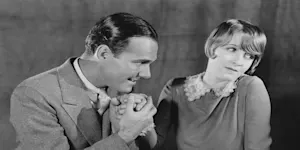What Makes This Word Tick
"Jocund" is a word that seems to bounce with joy even when you say it. It's all about a sense of cheerfulness and mirth. The kind of happiness that’s infectious, making even the grayest days a little brighter. While you don’t hear it every day, when it does pop up, you know something joyous is afoot.
If Jocund Were a Person…
If "Jocund" strolled into a room, they'd be the life of the party, wearing a bright, possibly floral outfit, with a laugh that rings out like a favorite tune. They're the type of person who lifts everyone's spirits without even trying, embodying a zest for life that’s aspirational.
How This Word Has Changed Over Time
Originally, "jocund" was used widely in literature and conversation to depict joyfulness, especially in the works of writers like Shakespeare. Over time, the word has fallen out of common parlance, replaced by simpler words like "joyful" or "cheerful," but retains its charm in poetic or formal settings.
Old Sayings and Proverbs That Use Jocund
Jocund doesn't prominently feature in old proverbs, but it would feel right at home in a saying like, "A jocund heart is good medicine," echoing the idea that happiness is healing.
Surprising Facts About Jocund
The word "jocund" shares its roots with "joke" and "jocose," all originating from the Latin "jocundus," meaning pleasant. It has a subtle sense of sophistication to it, often used to describe scenes in nature or joyful gatherings.
Out and About With This Word
Picture "jocund" at a spring festival, surrounded by blooming flowers and laughter, or perhaps during a lively family gathering where stories are shared, and generations of laughter echo through the room.
Pop Culture Moments Where Jocund Was Used
While it doesn't often pop up in modern pop culture, when it does, "jocund" is usually found in period dramas or classical theater productions, lending an air of elegance and historical flair.
The Word in Literature
In literature, "jocund" often decorates the pages of works by poets and authors aiming to convey a setting filled with joy. Wordsworth utilized it beautifully in his writings, capturing the essence of joyful nature.
Moments in History with Jocund
Imagine the end of World War II, with jubilant celebrations filling the streets. It might not have been spoken, but "jocund" perfectly captures the relief and joy felt worldwide at that momentous time.
This Word Around the World
While "jocund" might not translate directly into other languages, its essence is captured in countless expressions worldwide. Think of the French "joyeux" or the Italian "giocondo," both imparting a similar sense of happiness.
Where Does It Come From?
The etymology of "jocund" traces back to Latin, coming from "jucundus" and the Old French "jocond." It’s linked to the concepts of delight and pleasure reflected across its linguistic siblings.
How People Misuse This Word
"Jocund" is sometimes mistaken for meaning only superficial happiness, but it actually implies a deeper, more pervasive sense of joyfulness that lifts the spirit and warms the heart.
Words It’s Often Confused With
Joyful: While similar, "joyful" is more commonly used and lacks the specific old-world charm of "jocund."
Jocular: This word leans more toward comedic or joking behavior, whereas "jocund" centers on joyousness and cheer.
Additional Synonyms and Antonyms
Synonyms include blithe, jolly, and mirthful. Antonyms could be gloomy, sullen, or morose.
Want to Try It Out in a Sentence?
The jocund sound of children laughing on a summer’s day filled the neighborhood with warmth and cheer, making even the grumpiest of passersby smile.
















